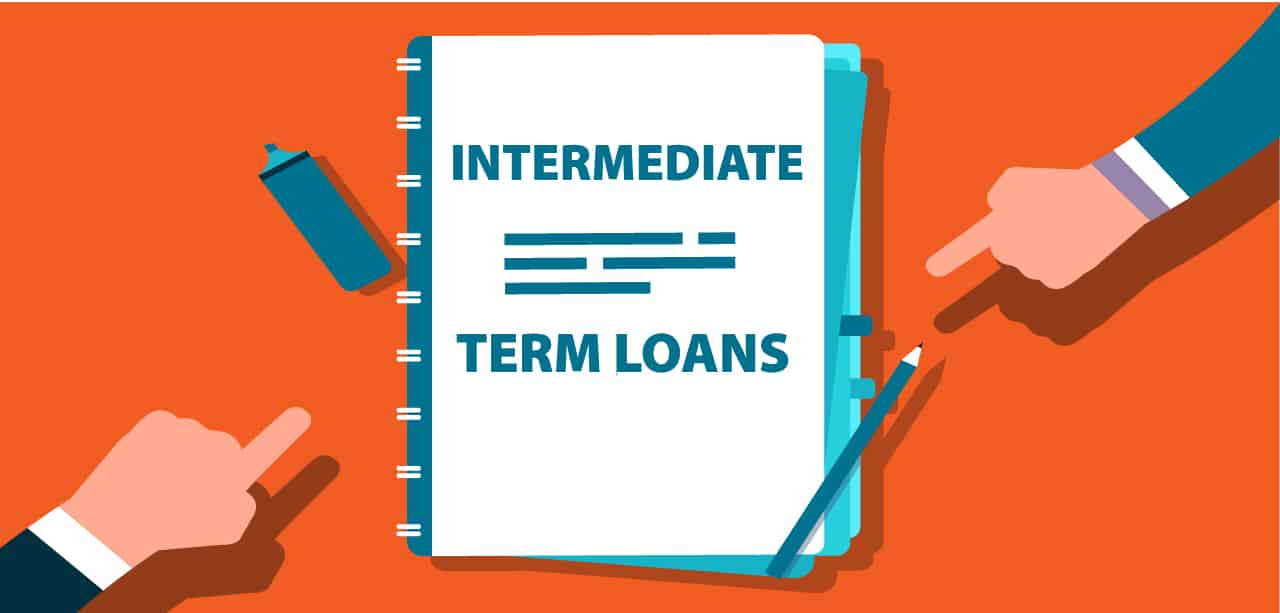Intermediate Term Loans: How To Qualify and Apply

When you shop around for a small business loan, you may find three types of loan maturation time periods. Short-term loans are one year or less, intermediate term loans are one to five years, and long-term business loans can range from three to 25 years.
Depending on your unique business and financial situation, an intermediate term loan may offer the right middle ground.
In this blog post, we'll take a closer look at what intermediate terms loans are and how they work.
What are Intermediate Term Loans?
Generally speaking, an intermediate term business loan lasts anywhere between one and three years. It comes with a fixed maturity date and repayment terms. With an intermediate term loan, you may be able to secure up to $1 million in funding. To determine whether the interest rate will be fixed or variable, lenders will review the following factors:Whether the loan is secured or unsecured
Your business finances
The loan amount
A fixed rate will remain the same over the life of the loan whereas a variable rate will fluctuate based on the market. While interest rates vary from lender to lender and depend on your credibility, most range from 6% to 30%.
When Do Intermediate Term Loans Make Sense?
There are numerous situations that may warrant an intermediate term loan as a small business owner. It may be a great option if you need working capital for expenses such as:
Expanding to another location
Hiring new employees
Purchasing equipment
Refinancing debt
In most cases, intermediate loans are repaid directly from the asset they paid for. Let’s say you take one out to purchase an expensive piece of equipment. The equipment allows your employees to be more productive and as a result increases revenue. In this scenario, you would use the new revenue that the equipment brought in to repay the business loan.
An intermediate term loan can also allow the asset, whether it be a new employee or new piece of equipment to make a contribution back to your business before the loan matures. That being said, if your goal is to fund everyday expenses to keep your business running, you’ll be better off with a short-term business loan.
The Benefits and Drawbacks of an Intermediate Business Financing
Compared to short-term loans, intermediate term loans offer relatively low interest rates. Lower rates may save you thousands of dollars on the overall cost of your business loan.
However, the major downfall of intermediate business financing is the rigorous application process.\_
Many lenders will ask for your business bank statements and tax records. They may also check your credit score and require you to share other financial information about your business. Therefore, if you need quick financing, intermediate term loans may not be a good fit.
It’s also important to note that intermediate term loans often require collateral or an asset like a piece of property or inventory. Some business lenders may even ask for a personal guarantee in which you promise to repay the loan with your personal assets if necessary.\_
How to Get an Intermediate Business Loan
If you’d like to take out an intermediate business loan, follow these steps.
Determine Your Preferred Funding Amount: First and foremost, figure out how much money you’d like to borrow. To do so, you may need to research how much the equipment you’d like costs or calculate a new employee’s salary.
Check Your Business Credit History: Most lenders will look at your business credit score before they decide whether to not to approve you for an intermediate business loan and what types of rate and term to offer. Pull your business credit card so you know how likely you are to get approved.
Gather Required Documents: As stated, you’ll need to provide a number of documents to the online lender. Take the time to collect your business plan, bank statements, tax forms, and other important financial documents.
Choose Your Collateral: Since most intermediate business loans require collateral, think about which asset you’ll want to use. This may be equipment, inventory, commercial property, a company vehicle, or anything similar of value that you own.
Shop Around: Not all intermediate business loan lenders are created equal. Shop around to discover the options at your disposal. Once you do that, identify a few lenders that stand out to you.
Compare Business Lenders: Look at the requirements, terms, rates, and fees of each business financing lender. Ideally, you should select the lender that can offer you the lowest rate and most favorable terms.
Apply: You may apply online or in-person, depending on the lender's application process. Be sure to double check your application to ensure accuracy, as any errors may delay approval and funding time.
Intermediate Term Loans Of fer a Middle Ground
If you’d like your business to grow and expect a return on an investment within the next one to three years, an intermediate term loan can be the ultimate solution. As long as you repay it on time, it can be an affordable way to take your business to new heights.